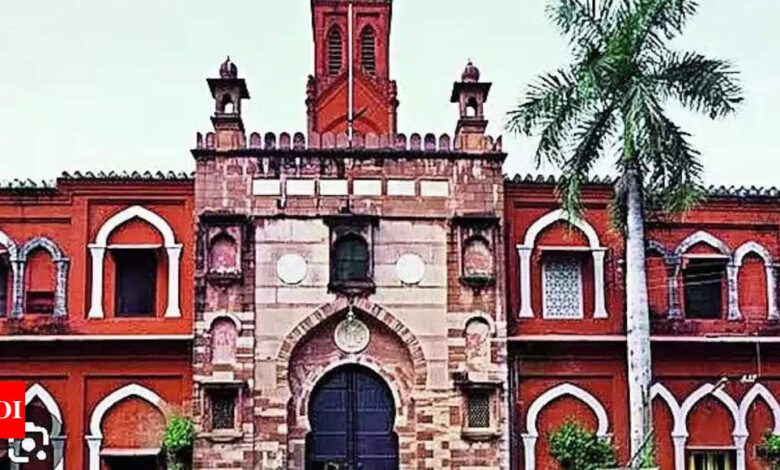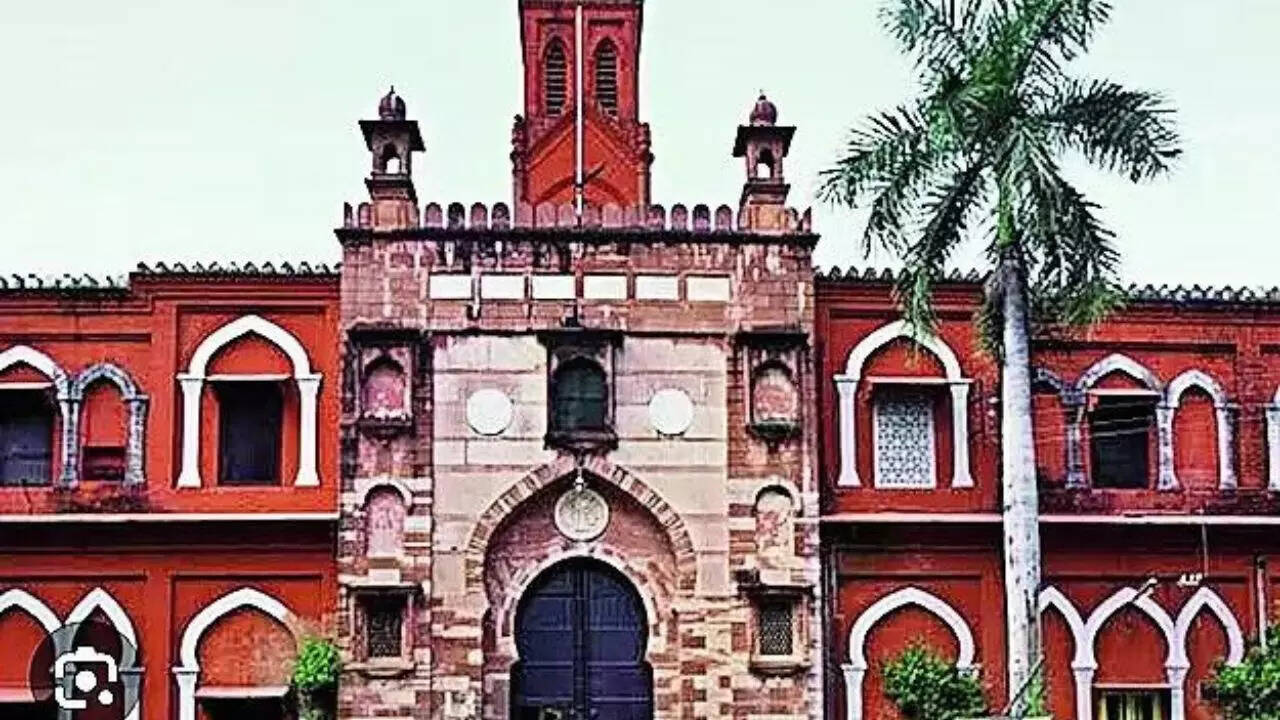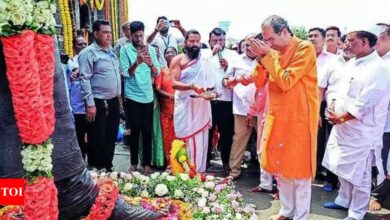India
In 1920, Muslims said they were a nation, not minority: Sr advocate |

[ad_1]
NEW DELHI: Senior advocate Rakesh Dwivedi on Tuesday cited a string of episodes from history to counter Supreme Court’s proposition that if Muslims were deemed to be the force behind Aligarh Muslim University in 1920, it could qualify as a minority institution in the post-Constitution era by arguing that Muslims, at that point of time, never considered themselves as a minority but as a ‘nation’.
Appearing for a petitioner who had successfully challenged 50% reservation for Muslims in AMU in Allahabad HC, Dwivedi said ‘minority’ as a concept did not exist during British rule, and it would be presumptuous on the part of the seven-judge bench comprising CJI D Y Chandrachud and Justices Sanjiv Khanna, Surya Kant, J B Pardiwala, Dipankar Datta, Manoj Misra and Satish C Sharma to describe AMU as a minority institution when it was neither established nor administered by Muslims.
He said history showed that Muslims neither considered themselves to be a minority when AMU Act was passed in 1920 nor did the British India government categorise them denominationaly. Granting AMU minority status after more than 100 years would endanger its eminence as an institution of national importance, especially when AMU chose not to challenge for more than 40 years the SC’s Azeez Basha judgment of 1967, which had adjudged it to be a non-minority institution, Dwivedi said.
“Sir Syed Ahmad Khan had established Muhammadan Anglo-Oriental (MAO) College, whose foundation was laid by Lord Lytton. Khan considered Muslims to be a separate and distinct nation which had once ruled over India,” he said.
“Khan did not consider Muslims to be a minority merely because they were numerically less than Hindus. Khan is considered the father of the two-nation theory, which was later seconded by poet Allama Iqbal at the 1930 Muslim League session in Allahabad, and which was made the basis of the 1940 Lahore Resolution by Mohammed Ali Jinnah. It is this theory of two nations, which emphasised a claim of parity between Hindu India and Muslim India, that led to partition and creation of Pakistan. The theory of two nations does not accommodate the theory of safeguards for a minority,” he said.
Appearing for a petitioner who had successfully challenged 50% reservation for Muslims in AMU in Allahabad HC, Dwivedi said ‘minority’ as a concept did not exist during British rule, and it would be presumptuous on the part of the seven-judge bench comprising CJI D Y Chandrachud and Justices Sanjiv Khanna, Surya Kant, J B Pardiwala, Dipankar Datta, Manoj Misra and Satish C Sharma to describe AMU as a minority institution when it was neither established nor administered by Muslims.
He said history showed that Muslims neither considered themselves to be a minority when AMU Act was passed in 1920 nor did the British India government categorise them denominationaly. Granting AMU minority status after more than 100 years would endanger its eminence as an institution of national importance, especially when AMU chose not to challenge for more than 40 years the SC’s Azeez Basha judgment of 1967, which had adjudged it to be a non-minority institution, Dwivedi said.
“Sir Syed Ahmad Khan had established Muhammadan Anglo-Oriental (MAO) College, whose foundation was laid by Lord Lytton. Khan considered Muslims to be a separate and distinct nation which had once ruled over India,” he said.
“Khan did not consider Muslims to be a minority merely because they were numerically less than Hindus. Khan is considered the father of the two-nation theory, which was later seconded by poet Allama Iqbal at the 1930 Muslim League session in Allahabad, and which was made the basis of the 1940 Lahore Resolution by Mohammed Ali Jinnah. It is this theory of two nations, which emphasised a claim of parity between Hindu India and Muslim India, that led to partition and creation of Pakistan. The theory of two nations does not accommodate the theory of safeguards for a minority,” he said.
#Muslims #nation #minority #advocate





